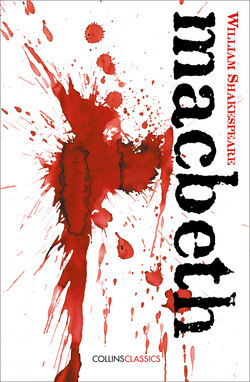Читать книгу Macbeth - William Shakespeare - Страница 11
ACT I
ОглавлениеA note of doubt and confusion is struck by three witches in the first scene. They refer to a battle that is not yet concluded; they plan to meet Macbeth, one of the Scottish generals, in a deserted place, at the end of the day’s fighting. This is followed by a scene in which Duncan, King of Scotland, hears an interim report on the battle between the rebels (Macdonwald and the Thane of Cawdor) together with an army of Norwegian invaders, and the loyal Scottish forces led by Macbeth and Banquo. A wounded Sergeant describes a ferocious fight in which both Macbeth and Banquo are acquitting themselves with tremendous skill and determination. Ross, another Scottish lord, comes in to announce victory. King Duncan orders the execution of Cawdor and the honouring of Macbeth with the traitor’s title.
The witches meet Macbeth as they had planned. Banquo, who is with him, addresses the witches with suspicion, seeing them as probably evil. Macbeth says little, but seems prepared to listen to them. They greet him as Thane of Glamis (his correct title), Thane of Cawdor (a title which, by now, is his, but he doesn’t know it), and future king. Banquo notices that Macbeth reacts to what the witches say with apparent fear. He orders the witches to make some announcement about his future, too; they respond by telling his fortune in riddles. In particular, they say that he is to be the ancestor of kings, though not a king himself. The witches disappear, leaving the two men, bewildered, repeating the prophecies. Ross arrives to announce Macbeth’s new title of Thane of Cawdor. Macbeth’s thoughts turn at once to the possibility of being king, while Banquo shows again that he deeply distrusts the witches. (What, can the devil speak true?) Before the end of the scene Macbeth is already contemplating the murder of Duncan, though hoping that the final prophecy may come true without any action on his part.
In Scene iv, at the royal palace at Forres, King Duncan and Macbeth face each other. The former is warm, friendly, grateful for his general’s services; the latter superficially responsive and dutiful Duncan proclaims his son Malcolm as his heir. This leaves Macbeth almost committed to the murder of Duncan, but well aware of the nature of what he contemplates (he refers to his black and deep desires). In Scene v, Lady Macbeth makes her first appearance. She is reading a letter she has just received from Macbeth in which he tells her about the witches’ prophecies, and the speedy fulfilment of part of them. Lady Macbeth immediately determines that he shall be king, by whatever means may be necessary. She thinks he may be too good-natured to catch the nearest way (that is, to kill Duncan), but she feels confident that she can persuade him to do it. Fate seems to be on her side when a messenger enters to say that Duncan is on his way to honour them with a visit. In a speech in which she reveals much of her character (The raven himself is hoarse…, lines 38–54), she acknowledges her natural womanly feelings but appeals to the powers of darkness to make her cruelly resolute. Macbeth arrives and his wife makes it clear that she expects him to kill Duncan that night. He makes no clear response. Duncan and his court come to Inverness Castle and are greeted effusively by Lady Macbeth but, significantly, not by Macbeth himself.
In the final scene of the first Act, Macbeth struggles with his ambition and his conscience. He has left the banquet hall where the king is dining to try to work things out on his own. He knows that Duncan is a good king, and is clear that nothing but selfish ambition is pressing him towards a terrible crime. He has just concluded that the plan is a wicked one and that he will abandon it, when his wife appears and attacks him viciously and determinedly at his weakest point – his pride in his own courage and manliness. She accuses him of cowardice, and of not loving her. She follows this up with an appalling demonstration that she is willing to go to any lengths herself, declaring that she would dash her own baby to the ground rather than go back on her word. She outlines a plan of action. Macbeth is persuaded, though he is dreadfully aware of the wickedness of what they plan to do.
